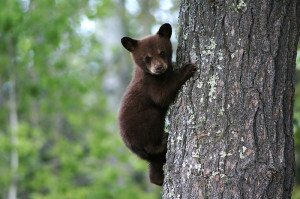There are moments in the expat life where you’d like to talk to your children but you can’t.
Maybe the move still needs to remain confidential. And your children are too young to keep a secret.
Maybe the move is not confirmed yet and you don’t want to confuse your little kids.
Or maybe you’re just scared to tell them. After all, your last move was 18 months ago!
How are they going to react this time? What if they burst into tears, reject you and get angry at you? Or maybe worse, what if they simply shut down and withdraw?
On the other hand, you know that time is precious. Giving sufficient notice in advance can really help your children prepare themselves mentally for the change. I believe it’s key in making the transition smoother.
So why should you waste precious days (or weeks) and remain crippled with self-doubt?
Dealing with your inner talk can be quite stressful and exhausting:
“Am I doing the right thing for my kids? If I’m hiding them this big change right now, are they still going to trust me in the future? I don’t feel comfortable with the fact that I have to lie, even only by omission?”
All those questions and many more are popping into your head. And you’re not sure how to handle the situation.
Here is my suggestion: a technique you can use to test different situations, express your feelings, fathom your children’s reactions.
The secret lies in the power of storytelling
Note: I think that this simple approach can apply to kids up to approx. 10 years old.
Young children love stories. Especially at bedtime.
Suppose that each evening, you decide to tell your child(ren) the story of a little bear. For the sake of this example, I’ve chosen a bear but feel free to replace it by any other favorite animal.
One more point: this story is not like any other story. You’ll need your child’s input to complete it.
Here is the recipe:
- 3 bears: Mama Bear, Papa Bear and the little bear
- one move
- 2 cultures (at least)
- 3 spoons of fantasy
- a grain of mystery
- 1 generous cup of your child’s help
Take the 3 bears. Make up your own story where the little bear goes through situations similar to what your child is going to experience. Introduce little by little cues about the move. Alternate narrating moments with exchange moments with your children. Ask for their feedback, their thoughts. This gives your kids the ability to deal with information and ideas in a non-threatening way instead of forcing them to confront shocking news.
Here is a suggestion how to start…
Once upon a time, there was a little bear who used to live with Mama Bear and Papa Bear in a big big forest far, far away. This little bear was very happy with his parents. Every morning, he looked for berries with his mother. Every week, he went fishing with his father. He had lots of friends and their favorite game was hide and seek. At his birthday party, they all got a treat: a delicious honey pot each with a few dozen moths. But one day, something happened. The little bear did not know it yet but his world would change forever…
And now you can start building your story.
At first, he did not notice anything really abnormal. Papa Bear got the visit of one of his very old friends, Loggy Bear. They used to go to school together. But when Papa Bear and Mama Bear got married a few years ago, Loggy decided to leave the forest and travel the world. He walked for days and weeks in a row, crossed woodlands, visited fields, uncovered the taiga and fell in love with Laila Bear! He settled there and started a family. He even got 2 little bears: Igor and Anastasia. So when Loggy Bear came back that day, Papa Bear and Mama Bear were quite excited. Mama Bear baked her best cake, Papa Bear looked for fresh fish. They talked and laughed a lot. The little bear found this SO boring (you know… when adults are sitting for hours at the table) that he was happy for once to go to bed!
If you’re delighted about the move, here is a suggestion to continue:
Next morning, when the little bear woke up and entered the kitchen, he immediately picked up that something was in the air. He saw Mama Bear very happy and Papa Bear quite excited. They had great news: “Son, said Papa Bear, Loggy has invited us at his place. In fact, he has offered to give us some land there and to go hunting with him. This is a fantastic opportunity. If we go with Loggy, we’ll discover a new place, new berries and new fish! What do you think?”
And here you can ask your child all kinds of questions: how is the little bear going to react? Will he be excited to go on adventure? Will he be sad or scared? And why?
If it’s more an obligation than a real choice, you can go along this path:
Next morning, when the little bear woke up and entered the kitchen, he immediately picked up that something was in the air. He saw Mama Bear with teary eyes and Papa Bear really worried.
The little bear was not quite sure: yesterday they were laughing and enjoying the evening and this morning the atmosphere was so different. Then Papa Bear decided to talk “Son, said Papa Bear, we have to move. Loggy told us that the humans have decided to build a dam in the forest. A dam is a huge wall which can move and unleash tons of water in the valley. The works are going to start soon. It’s better to leave now while we still have some time to prepare ourselves. We don’t know whether we’ll be able to come back one day. We’ll live with Loggy for some time and then we’ll find another home. What do you think? What do you want to bring with you?”
Again, the purpose here is to engage your child as much as possible. How can he/she help little bear? What advice could he/she give to him?
Stories help children get some emotional distance from difficult issues
It’s not you, it’s Mama Bear. It’s not your child, it’s little bear. You’re both the narrators of the story. You can decide anything.
Sometimes it can be difficult to say that you’re worried or anxious but if it’s Mama Bear who’s worried in a story, it’s much easier.
As a parent, telling the story of little bear forces you to better identify, describe, acknowledge the feelings involved. You’re looking at the course of your own life from an outsider point of view.
For the child, it’s an exploration: it prepares the ground for further developments and ultimately the truth. You can ask your child about his opinion. Suppose you hesitate to talk about the move. You can keep the secret between both Mama Bear and Papa Bear for a longer period of time. You can then inquire how your child would handle the situation. Her answer might give you some hints about the behavior she’d expect from you. Use this information wisely though. We’re still in an imaginary world in order to help her deal with information in a non-threatening way.
Storytelling helps to prepare your child emotionally for upcoming changes
Each story has a message. Each story conveys values. Through figuring out the adventures of a little bear, you can inform your child about cultural differences. You can also prepare them to deal with particular behaviors (reactions from the grand-parents and some other friends).
Storytelling helps you lead by example. You can point out to your child what could be avoided (stress, panic) and offer alternatives, even teach breathing techniques! You can also depict the situation one year later when the little bear is very proud of speaking another language.
And what if the little bear became your child’s confidant? The one he’d like to talk to when he’s got some concerns? The only one able to understand him because he already went through the same adventure? What a comfort for your child to know that he/she’s not alone!
Children look up to heroes more often than their own parents!
As the saying goes “No one is a prophet in his own country.”
I recall film director Luc Besson explaining the behavior of his kids when he wrote the book and made the movie around “Arthur and the Invisibles”. His children were so fascinated by Arthur. They did not care about their dad’s opinion. They insisted to have Arthur’s point of view without realizing that Arthur spoke through their father!
Now, over to you.
What do you think? Will you adopt the little bear as part of your family? I hope you’ll find it beary helpful 🙂
* Credit image Wikimedia Commons, Credit music pianosociety

